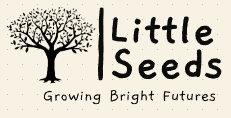Typical Day
Arrival and Open Work Time
Between 8-9am families arrive for drop off. Infants get unpacked from their outerwear, and the adults exchange information about eating and sleeping. Most of the kids have time to play in the playroom before it’s time for a bottle and a morning nap.
Toddlers arrive on the second floor and choose between table top activities or centers. After all the children arrive, we wash hands and sit down for breakfast. After breakfast, all the areas of the classroom are open, and the kids can choose and move between stations offering different kinds of play. Gross motor and sensory play is a big part of how they interact, but they also start drawing with crayons instead of chewing on them, and feeding every one out of the play kitchen.
Our “big kids”, come in choose between a table top activity or centers. After everyone has arrived, we wash hands and eat breakfast together, sitting around the table they exchange so many smiles and jokes and get ready for a fun day. After breakfast they love to read books, build with trains, explore art materials, throw imaginary birthday parties and scoops/pours/mix whatever sand or water we set out that day (I think baby washing is their favorite).
Morning meeting
The second and third floors both have a morning meeting each day. For the toddlers it’s almost entirely songs, some simple dances and activities, lots of movement attached to the words so kids can participate even before they can talk.
The older still sing and dance a lot, but they begin to participate more verbally, suggesting the next animal for old Macdonald, answering simple questions like how they came to school or what they had for breakfast. The oldest kids share some of the work they did during the open work period, and answer questions about their process. They share aspects of their lives outside of school, and discuss important matters within the community, like how they felt when someone didn’t share with them, or how disappointed they were not st sit next to so and so. The goal of meeting is for kids to get used to sharing with a group, and orient them to the next transition.
Our infants don’t have a meeting all together, but are encouraged to express themselves in all the ways at their disposal.
After meeting the kids head out on a walk, if the weather is prohibitive we do some extra dancing and movement games, or set up an obstacle course.
Then it’s time for lunch. We provide simple healthy lunches, and parents supplement with things their child particularly likes. Whole grains, fruits and veggies at every meal. The kids eat family style learning to use words to ask for what they want, consider concepts of quantity and number (more/less, 3 carrots at a time, how many friends do we have so how many cups do we need). Children are encouraged to try new things. Sweet treats are limited to birthdays and special occasions. We set up lunch so the kids can be independent, but also help with feeding for those who need it. Mealtimes are a great opportunity to work on motor skills.
After lunch it’s nap time. The kids find their nap mats and a space to roll it out. The room gets dark(ish), and quiet music comes on. Some kids cuddle a special lovie others, like to have their back rubbed, or just know a teacher is close. Nearly all the kids sleep after a busy morning, but if someone doesn’t they have some extra quiet playtime.
When they wake up it’s snack time, and another period of open play and activity choices. Afternoons are usually a little quieter, lots of books, and dress up. Kids start getting picked up one at a time, and go home for family time and sleep before coming back to do it all again.
Communication
During the day we use an App called Brightwheel to communicate the routine parts of the day, meals, diaper changes, naps, as well as send a couple pictures.
There’s also a blog for group pictures, and cute stories from the week.
The teachers are available for two parent/teacher conferences throughout the year, scheduled individually and generally held during the last half hour of the day.
Parents are always welcome to call/email/message or talk in person at pick up and drop off. Communication is hard when all the adult are busy, but coordinating care, and discussing the little people we share responsibility for is a priority for responsive caregiving.
We balance the commitment to communication, with the never ending attempt to minimize the appearance of screens in the classroom…
